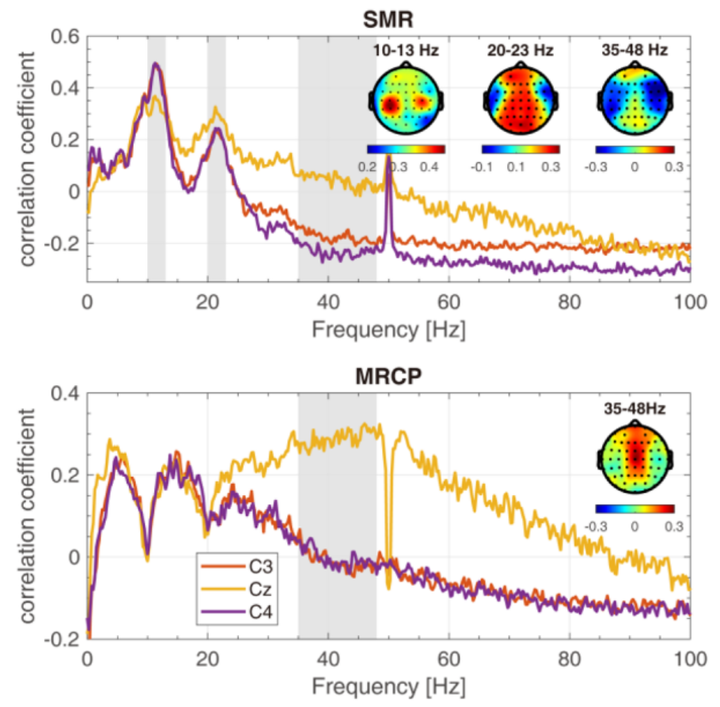Reduce brain computer interface inefficiency by combining sensory motor rhythm and movement-related cortical potential features

Abstract
Objective. Brain Computer Interface (BCI) inefficiency indicates that there would be 10% to 50% of users are unable to operate Motor-Imagery-based BCI systems. Importantly, the almost all previous studieds on BCI inefficiency were based on tests of Sensory Motor Rhythm (SMR) feature. In this work, we assessed the occurrence of BCI inefficiency with SMR and Movement-Related Cortical Potential (MRCP) features. Approach. A pool of datasets of resting state and movements related EEG signals was recorded with 93 subjects during 2 sessions in separated days. Two methods, Common Spatial Pattern (CSP) and template matching, were used for SMR and MRCP feature extraction, and a winner-take-all strategy was applied to assess pattern recognition with posterior probabilities from Linear Discriminant Analysis to combine SMR and MRCP features. Main results. The results showed that the two types of features showed high complementarity, in line with their weak intercorrelation. In the subject group with poor accuracies (< 70%) by SMR feature in the two-class problem (right foot vs. right hand), the combination of SMR and MRCP features improved the averaged accuracy from 62% to 79%. Importantly, accuracies obtained by feature combination exceeded the inefficiency threshold. Significance. The feature combination of SMR and MRCP is not new in BCI decoding, but the large scale and repeatable study on BCI inefficiency assessment by using SMR and MRCP features is novel. MRCP feature provides the similar classification accuracies on the two subject groups with poor (< 70%) and good (> 90%) accuracies by SMR feature. These results suggest that the combination of SMR and MRCP features may be a practical approach to reduce BCI inefficiency. While, ‘BCI inefficiency’ might be more aptly called ‘SMR inefficiency’ after this study.